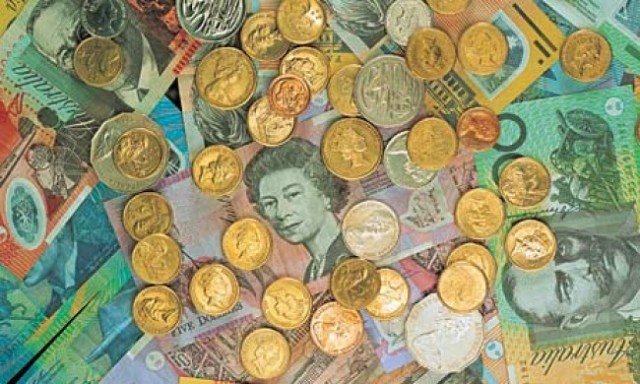Australia’s central bank cuts its benchmark interest rate to a new record low
The central bank of Australia has cut its benchmark interest rate to a new record low, in an attempt to spur a fresh wave of economic growth.
The Reserve Bank of Australia (RBA) cut its key rate to 2.5% from 2.75%.
Last week, the government cut its growth forecasts and warned that unemployment in the country could rise amid slowing growth.
The rate cut comes just days after PM Kevin Rudd called a general election for September 7.
The state of the economy is expected to be a key poll issue, along with asylum and climate change.
Treasurer Chris Bowen welcomed the move, saying that “the fact is that now, under Labor, interest rates are at record lows”.
“This cut means that a family with a standard mortgage of A$300,000 [$269,500] will now be paying around $A500 less a month and A$6,000 less in annual payments than when the Coalition was last in office,” Chris Bowen was quoted as saying by the Australian Broadcasting Corporation (ABC).
However, the opposition targeted the Labor party government’s economic policies.
“There is no doubt that a reduction in interest rates is a good thing, but you have to ask yourself why are interest rates likely to be cut,” opposition Leader Tony Abbott was quoted as saying by the ABC, ahead of the rate decision.
“If interest rates go down, it is because this government is presiding over an economy which is in much more trouble than government has previously been prepared to admit.”
Australia’s economic growth over the past few years has been powered mainly by the success of its resources sector.
Demand from countries such as China resulted in a commodities boom, which helped the country sustain its growth even through the global financial crisis.
However growth in those economies has slowed recently, driving down demand for commodities as well as their prices.
That led to the government lowering its forecast for growth. On Friday, it said that it now expected the economy to grow by 2.5% in the current financial year, down from its previous projection of 2.75%.
Analysts said that the slowdown in growth is likely to prompt the central bank to lower borrowing costs even further in an attempt to ease the burden on businesses and consumers.
“The economy’s probably slowed down a little bit more than they would have liked,” said Michael Turner a strategist with RBC Capital Markets.
“So they’re kind of playing catch-up a tiny bit, you would suggest.”
Michael Turner added that he expects the central bank to cut rates by another 25 basis points in the last quarter of the year.

